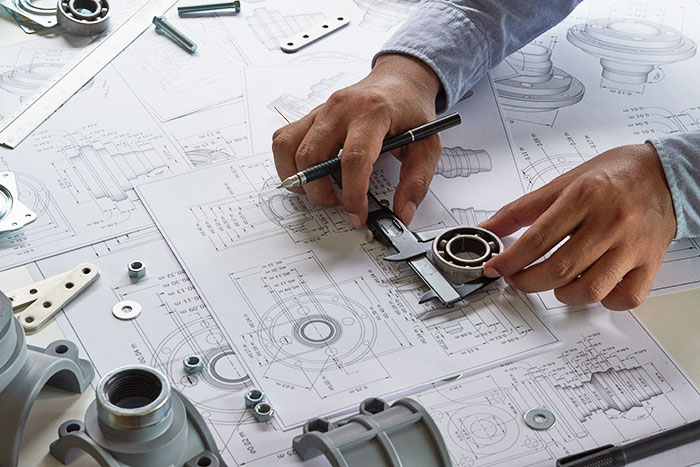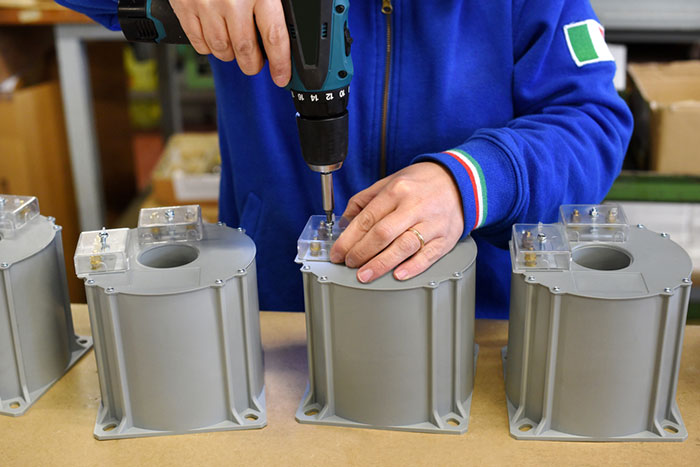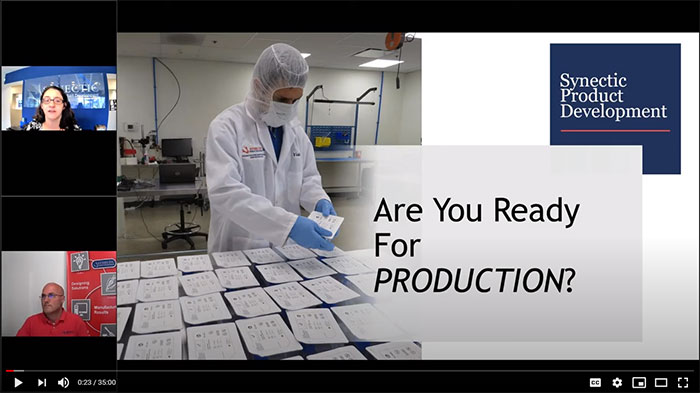
Process validation ensures a process consistently produces products that meet predefined quality standards. It is part of pilot production, the final step of new product introduction before your product moves to contract manufacturing. The validation process typically involves three key stages: Installation Qualification (IQ), Operational Qualification (OQ), and Performance Qualification (PQ). Each stage addresses different aspects of the manufacturing process to ensure it is robust, reliable, and capable of producing quality products.
Process validation is a regulatory requirement in the medical device industry, where product safety and efficacy are strictly controlled. In the U.S., for example, the Food and Drug Administration (FDA) mandates process validation to ensure devices meet their specifications and that manufacturers maintain adequate process control procedures. Process validation ensures the device’s consistency, safety, and performance, particularly when verification through testing is impossible or impractical.
When is process validation required?
Process validation becomes necessary when a contract manufacturer cannot entirely verify process outcomes through testing or inspection alone. Process validation may not be required if a product’s performance characteristics—such as size or weight—can be easily measured and confirmed. However, process validation is essential for processes where complete verification is impossible, such as ensuring the sterility of a medical device without compromising its packaging.
For instance, in the medical device industry, many products require sterilization. While testing each device’s sterility by opening its packaging would negate the purpose, manufacturers validate the sterilization process itself to ensure that each device is sterile without direct inspection. In such cases, the process validation steps—IQ, OQ, and PQ—are applied to ensure the sterilization process works effectively and consistently.
Installation Qualification (IQ)
The first step in process validation, Installation Qualification (IQ), focuses on verifying that all equipment necessary for the process has been installed correctly, according to the manufacturer’s specifications. This step verifies that the process starts with a solid foundation, where the equipment functions as intended. IQ typically includes:
- Inspecting equipment to check that all components are present and undamaged.
- Verifying that environmental conditions such as temperature and humidity are suitable for the equipment.
- Documenting that all installation steps comply with the equipment’s specifications.
Each IQ process includes a detailed protocol, checklist, and report. The protocol sets the criteria for successful installation, while the checklist ensures that all necessary steps are followed. The final report summarizes the findings, documenting any corrective actions needed to bring the equipment into compliance.
Operational Qualification (OQ)
After IQ, manufacturers move on to Operational Qualification (OQ), which verifies that the equipment can operate correctly at nominal conditions. OQ is usually performed after IQ, as part of scheduled quality assurance testing. During OQ, manufacturers test various aspects of the equipment’s functionality, such as temperature control, pressure settings, or timing mechanisms, depending on the specific machinery involved. These tests are critical to identifying and addressing potential issues before production. The OQ process includes:
- Testing the system performance under normal operating conditions.
- Ensuring the system produces reliable results
- Challenging the system’s worst-case operational conditions to establish an operational window.
- Guaranteeing the system produces reliable results.
This process demonstrates that the system is robust and can operate within various process parameters. It also establishes the normal operating condition window and verifies that all conditions function currently within the bounds of this window’s extreme conditions. In short, OQ checks that the process works within the desired control limits before production begins.
OQ follows a structured process similar to IQ, including a protocol, test checklist, and final report. This stage also establishes Standard Operating Procedures (SOPs) for ongoing equipment use, detailing how the equipment should be operated and maintained during routine production.
Performance Qualifiaction (PQ)
Performance Qualification (PQ) is the final stage of process validation, in which the entire manufacturing process is evaluated to ensure it consistently produces products that meet all specifications. Unlike IQ and OQ, which focus on equipment and operational limits, PQ looks at the overall process to ensure its long-term reliability and stability.
During PQ, manufacturers challenge the process under real-world production conditions. This includes collecting and analyzing data on product quality and process stability over time. The goal is to demonstrate that the process can consistently deliver products that meet quality standards without drift or variability. Key elements of PQ include:
- Defining acceptable process parameters.
- Establishing sampling plans and data analysis methodologies.
- Documenting variability limits and making risk-based decisions on process control.
PQ ensures that the process is capable of producing quality products not just once but repeatedly over an extended period.
Through its three key stages—IQ, OQ, and PQ—process validation plays a vital role in ensuring that manufacturing processes are reliable, consistent, and capable of delivering products that meet stringent quality and regulatory standards. In industries like medical devices, where product safety is critical, thorough validation ensures that even processes that cannot be fully tested can still be trusted to perform as required. By validating each step, from equipment installation to performance under actual conditions, manufacturers can maintain high-quality production standards and ensure compliance with regulatory requirements.
About Synectic Product Development: Synectic Product Development is an ISO 13485 certified, full-scale product development company. Vertically integrated within the Mack Group, our capabilities allow us to take your design from concept to production. With over 40 years of experience in design, development, and manufacturing, we strive for ingenuity, cost-effectiveness, and aesthetics in our designs. Learn more about our contract manufacturing services and see how we can help your next project.



